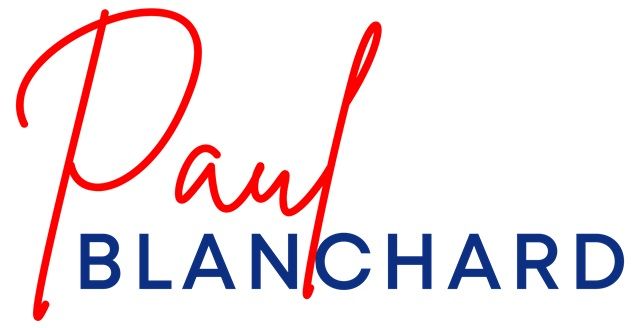Why
The Loire Valley works for me
Most of us spend decades chasing achievement, only to wake up one day wondering what it was all for. The Loire Valley isn’t an escape from that question, it’s the answer that comes when you finally stop asking the world for permission to slow down. This is where I found what I didn’t know I was missing: time, space, and a rhythm that reminds you living well isn’t about more, it’s about enough.
Why the Loire Valley works for me.
If you’ve reached the point in your career where the accolades feel hollow and the grind feels like a hamster wheel, you’re not alone. Plenty of us hit this stage. We’ve done the meetings, the mergers, the milestones. We’ve built something. But at a certain point, the ladder-climbing ends, and the horizon ahead looks more like paperwork, health insurance forms, and dinners that all start tasting the same.
You’re staring down the fourth quarter of your life wondering if you really want to run out the clock behind a desk. The house is paid off, the kids are grown, the career’s been built, dismantled, rebuilt, and maybe burned to the ground one last time. And yet here you are, still grinding.
Maybe you’re already retired, wondering if you really want to spend the next twenty years stuck in traffic, grousing about the price of eggs, and letting cable news chew through your sanity. If that idea feels like death by a thousand paper cuts, you’re not alone.
I was there too. And for a growing number of Americans who feel there has to be more, there is. The answer isn’t another career pivot. It’s an exit—to France.
Not Paris, with its overpriced everything and cooler-than-you vibe. Not the overcrowded Riviera where half of Britain went to die in the sun. Instead, there’s the Loire Valley. If you’re looking for a new chapter that blends affordability, community, and a daily rhythm that doesn’t revolve around your next quarterly report, this might just be it.
That’s where I landed. Here it’s castles and vineyards, long stretches of country road that seem to exist purely so you can slow down and remember what breathing feels like.
First, let’s talk about money, because whether we like it or not, that’s how most of us have measured our lives until now. Here your retirement dollars stretch further. A three-bedroom, two-bath, 300-year-old stone house with a courtyard and maybe a barn will cost less than a one-bedroom condo in a second-tier U.S. city. Property taxes? Probably less than your last monthly car payment—for the whole year. Healthcare? Practically free. A standard doctor visit costs €26.50 by law, and the system sends 70 percent of that right back into your bank account. An MRI won’t set you back the price of a used Subaru. It will barely dent your wine budget.
The weather helps too. There’s a reason the royals spent their summers here. The Loire Valley is known as France’s garden. Winters are mild by Midwest standards, summers rarely hit the extremes of the American South, and the climate stays steady and kind. Depending on how far you are from the nearest high-speed rail station, Paris is only about an hour to an hour and a half away. No need to stress about parking once you get there.
Want Bordeaux? Less than four hours by car, half that by train. Normandy, Brittany, and the beaches of La Rochelle? Three hours or so with the grandkids, the dog, and enough wine and cheese to keep everyone quiet for the week in an Airbnb that doesn’t cost your mortgage payment.
Daily life isn’t a montage of café terraces and art galleries, but it is slower and more human. The butcher might seem gruff the first year, then throw you a wink and an extra slice of pâté once he decides you’re not another clueless foreigner playing out a fantasy. Wine isn’t a luxury product here; it’s a staple. You find the local co-op, bring your own jug, fill it for a few euros, and walk away with something better than half the bottles in an American grocery store.
The truly special bottles? They’re not saved for birthdays; they’re what you drink on a Wednesday because you feel like it. The bread is good enough to risk your waistline. The cheese aisle alone is an adventure.
You learn that the strawberries that show up in May disappear by July. You sit in your courtyard at the end of the day with the dog snoring at your feet and realize you’re exactly where you’re supposed to be, even if you can’t quite remember the French word for garden hose. The currency here isn’t hustle or status. It’s time. And you’ve earned it.
Of course, it’s not perfect. You will get Frenched. Bureaucracy here is an art form. You’ll sign something thinking you’ve ended a service only to get billed again. The plumber won’t show. You’ll get a letter you can’t decipher until you realize it’s just confirming your trash collection date. But if you’ve spent decades navigating corporate nonsense, raising teenagers, or surviving whatever else life threw at you, you’re more ready for this than you think.
If you follow me, I’ll give you the parts they don’t print in the glossy expat magazines—the visa headaches, the odd neighbor encounters, the hidden costs, and the quiet wins that remind you why you did this in the first place.
Because this isn’t about running away. It’s about taking back the time you’ve earned. About mornings without Outlook. Days that stretch out on your own terms. Evenings spent in your courtyard, wine in hand, with nothing on the calendar except maybe a sunset you actually have time to watch.
If you’re done measuring your life in status updates and paychecks, and you’re ready for something real, this might be exactly what you’ve been waiting for.


